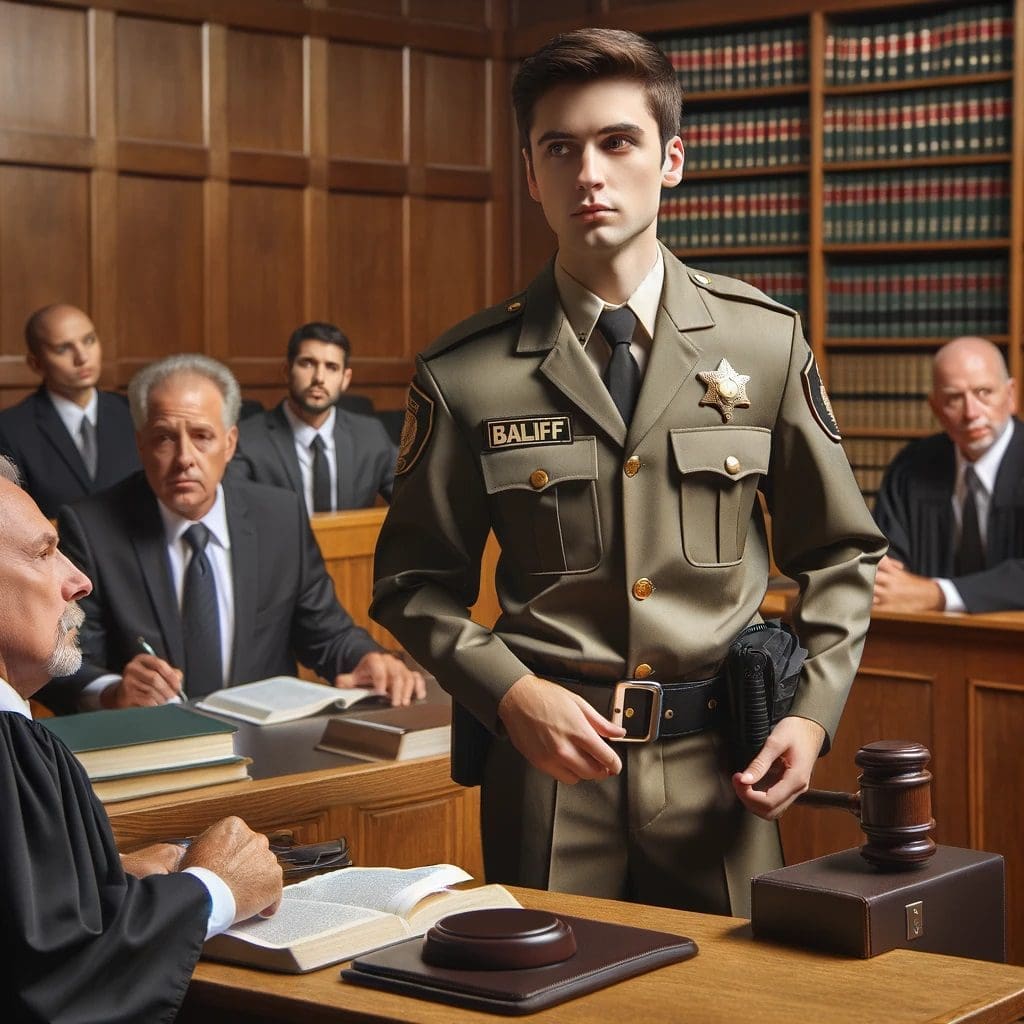Can Bailiffs Arrest People in the Courtroom?
Bailiffs play a pivotal role in the legal system, serving as the cornerstone of courtroom order and security. Their responsibilities are not just limited to maintaining decorum but extend to a range of duties that are critical for the smooth operation of both civil and criminal proceedings. In this detailed exploration, we will delve into the multifaceted world of bailiffs, examining their duties, training requirements, career paths, and the impact they have on the judicial process.
At the heart of a bailiff’s role is the maintenance of order in the courtroom. Bailiffs are legal officers, often with a background in law enforcement, tasked with ensuring that court proceedings run smoothly and securely. This includes a variety of responsibilities, from managing the courtroom’s physical environment to handling sensitive documents and evidence. Their presence is crucial in managing the interaction between the judge, the jury, attorneys, defendants, and the public.
One of the primary duties of a bailiff is to provide security. They are responsible for the safety of everyone in the courtroom, including the judge, jury, and attendees. This aspect of their role requires them to be vigilant at all times, ready to respond to any unexpected situations that may arise. The security responsibilities of a bailiff also extend to the transportation and supervision of prisoners, ensuring that they are securely and safely brought to and from the courtroom.
The educational path to becoming a bailiff can vary depending on the jurisdiction. While some regions may require only a high school diploma or GED, others may prefer or require candidates to have an associate or bachelor’s degree in a related field, such as criminal justice or political science. Degrees in these fields not only provide a foundational understanding of the legal system but also offer insights into the nuances of law enforcement, which are essential for a career as a bailiff.
In addition to formal education, practical training is a significant part of a bailiff’s preparation. This training often includes learning about court procedures, security protocols, and emergency response. It prepares bailiffs to handle a wide range of situations, from managing disruptive behavior in the courtroom to responding to potential threats. Some jurisdictions require bailiffs to complete field training, which may include time at a law enforcement academy.
Bailiffs must also possess a unique set of skills to effectively perform their duties. These include strong communication skills, the ability to remain calm under pressure, and a keen understanding of human behavior. These skills are critical when dealing with various individuals in the courtroom, from distressed witnesses to defiant defendants. The ability to de-escalate tense situations is particularly valuable, ensuring that the courtroom remains a place of order and respect.
The career prospects for bailiffs can be influenced by several factors, including educational background, training, and experience in related fields of law enforcement. While the demand for bailiffs is subject to fluctuation, those with additional qualifications and experience in areas such as policing, corrections, and courtroom administration are often more competitive in the job market.
Beyond their roles in the courtroom, bailiffs contribute significantly to the broader legal process. They ensure that trials and hearings proceed without unnecessary delays or disruptions, thereby upholding the integrity of the judicial system. Their role in safeguarding the courtroom and its occupants cannot be overstated, as it directly impacts the administration of justice.
In conclusion, bailiffs are indispensable to the legal system. Their multifaceted role encompasses security, order, and administrative duties, all of which are vital to the effective functioning of courts. The journey to becoming a bailiff involves specific educational and training requirements, and those aspiring to this career should be prepared for a challenging yet rewarding path. Their contribution to the legal process is not only about maintaining order but also about ensuring fairness and safety in the pursuit of justice.
For Further Information:
- History and Duties of Bailiffs in Federal Courts
- Bailiff Job Description: Roles, Qualities, and Responsibilities
- What is a Bailiff’s Role in the Court System?
- Comprehensive Guide: Bailiff Duties and Security Functions
- Learn About Bailiffs: Definition and Responsibilities
- Bailiff Job Description: Maintaining Order and Security in Court
- Complete Overview: Bailiffs in the Criminal Justice System
- Bailiff’s Duties for Mock Trial and Real-World Context














